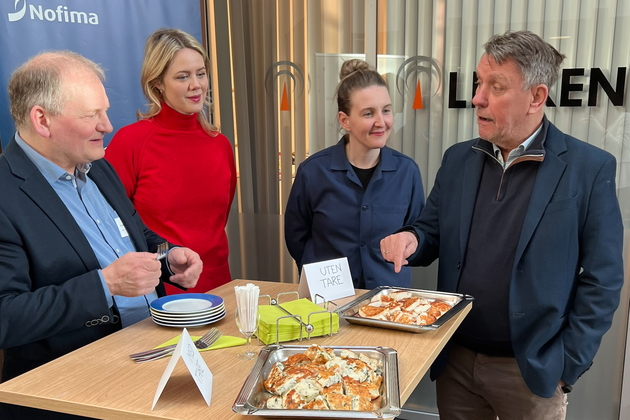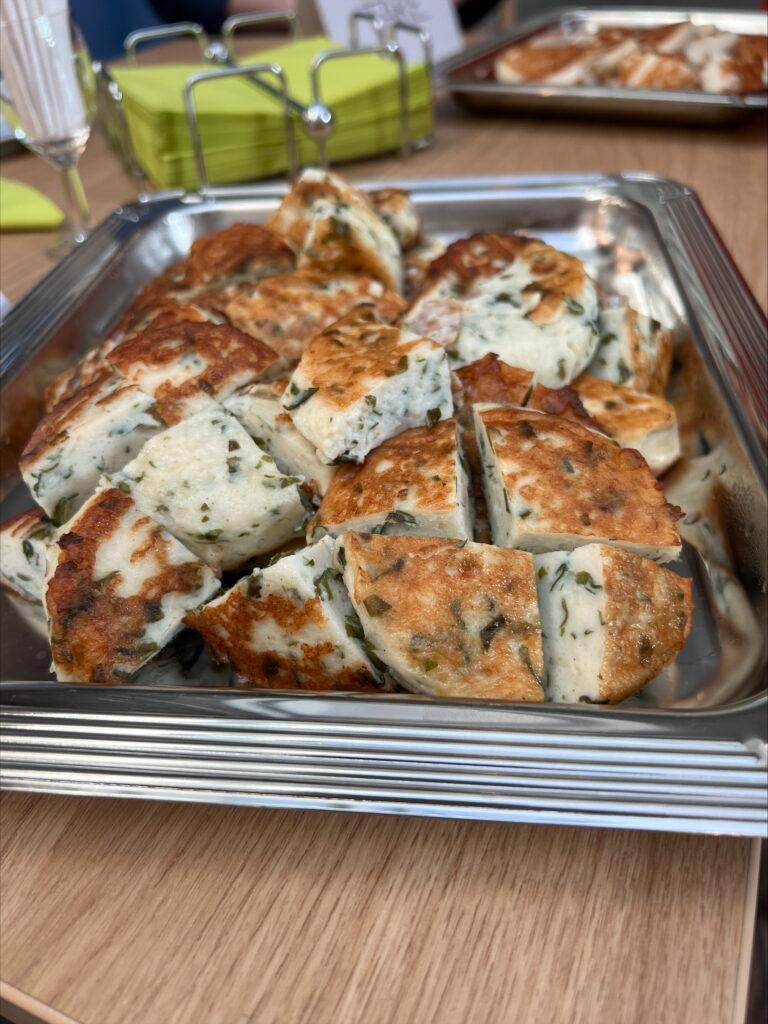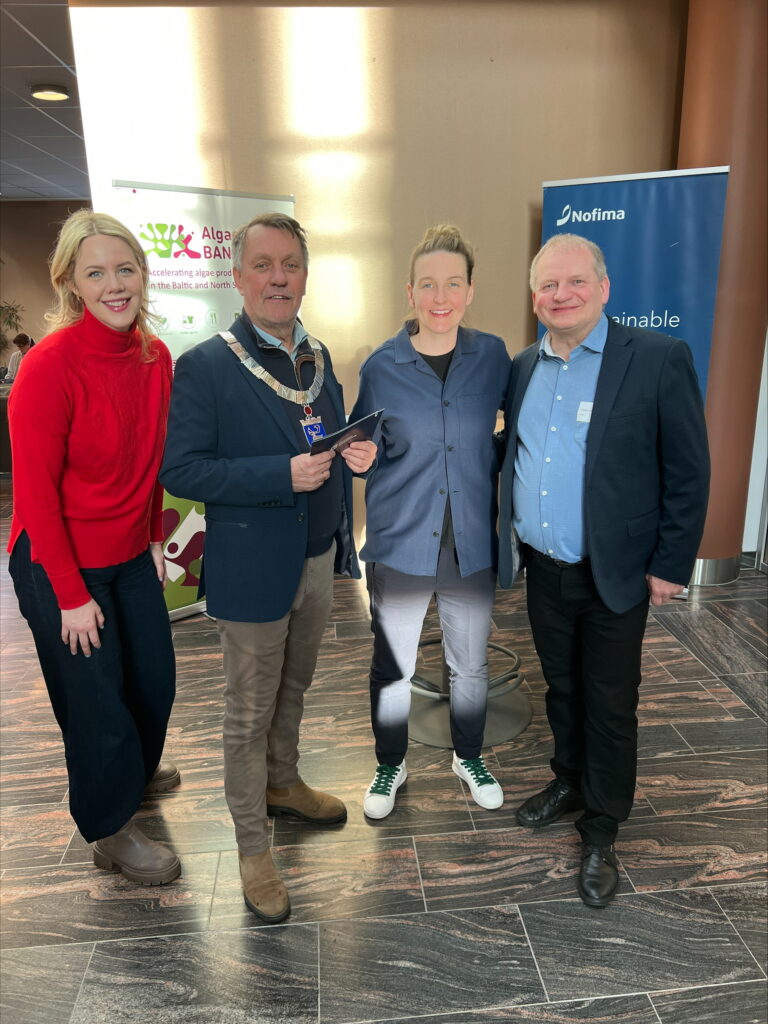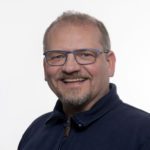Funding for New Seaweed Products

With €12 million in funding, partners in the EU-project AlgaeProBANOS gathered to create products based on seaweed and algae. The Mayor of Tromsø, Gunnar Wilhelmsen, opened the meeting.

Researchers and start-up companies will develop a series of seaweed- and algae-based products: dietary supplements for Alzheimer’s disease, plate fertilisers, printed materials, seaweed soup, seaweed bread, and notably seaweed fishcakes.
The Mayor of Tromsø, Gunnar Wilhelmsen, had the opportunity to taste the fishcakes during the meeting.
Fish cakes with and without seaweed
The menu featured two variants of fishcakes: one with seaweed and one without.
“The fishcake with seaweed tasted better. It also had a better texture than the one without seaweed” the Mayor concluded quickly.
Senior Scientist at Nofima, Dagbjørn Skipnes, and CEO at Sjy, Leonore Olsen, explained that seaweed acts as a binding agent, giving the fishcake nice texture with lower salt content.
From Seaweed to Fishcake Ingredient

Nofima leads the work on processing algae- and seaweed-based products, including product development and optimisation. Some effort is required before seaweed and small algae can become food or ingredients in other products. Senior Scientist Skipnes stated:
“Seaweed and algae are versatile and sustainable renewable resources with great potential for use in a wide range of product applications, but it doesn’t happen without effort.
He explained further:
“If seaweed and algae are going to be used as food ingredients, they should be processed so that the health benefits as well as the culinary experience are realised. In this project we are using complicated technologies that range from simple processing like cooking and drying to advanced technologies such as ultrasound and pulsed electric fields”.
As part of the EU meeting, participants will continue working on product development and market opportunities. They will also visit Biotep, a production facility that can produce powders and other ingredients from residual materials.
Facts about the project
AlgaeProBANOS is funded through Horizon Europe and has 26 partners from European industry and research, coordinated by the Submariner Network from Germany. The project is built around six algae pilot companies across the Baltic and North Sea regions. These companies have different business concepts based on both micro- and macroalgae for use in food, feed, dietary supplements, textiles, cosmetics, and plant biostimulants.
The project aims to bring eight innovative algae-based products to market and contribute to meeting the increasing demand for ecological circular bio-based products of high quality.
